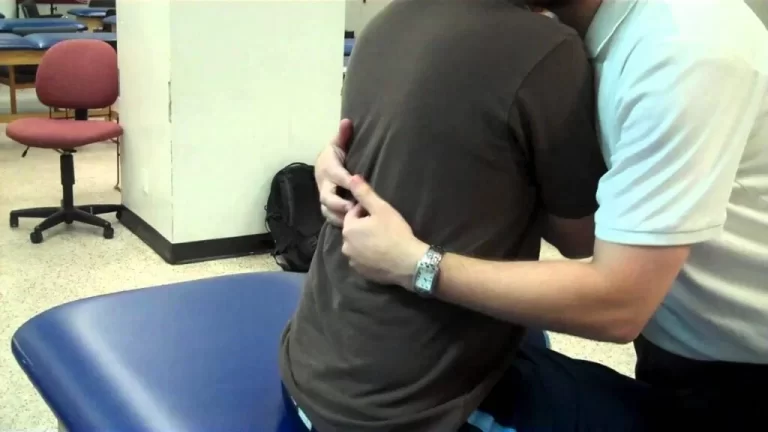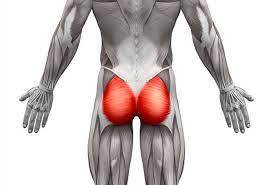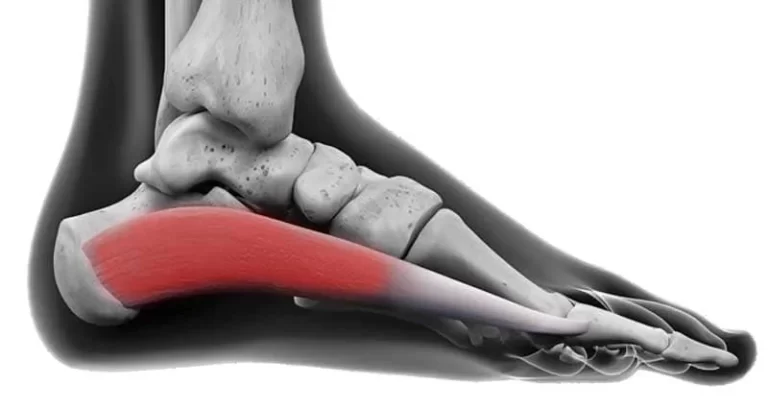Acute bronchitis
Table of Contents
What is acute bronchitis?
- Bronchitis is inflammation of the breathing tubes.
- These airways are also called bronchi.
- This inflammation causes increased mucus production and another change.
- Although there are several various types of bronchitis, the most common are acute and chronic.
- Acute bronchitis may be called a chest cold.
- Most symptoms of acute bronchitis last for up to two weeks.
- The cough can last for up to eight weeks in some people.
- Chronic bronchitis lasts a long time.
- It is more usual among smokers.
- Your bronchial tubes bring air from your trachea (windpipe) into your lungs.
- When these tubes become inflamed, mucus can create up.
- This condition is also called bronchitis, and it causes symptoms that can involve coughing, shortness of breath, and low fever.
- Acute bronchitis, also known as a chest cold, is short-term bronchitis – inflammation of the bronchi (large and medium-sized airways) of the lungs.
- The most common symptom is a cough.
- Other symptoms include coughing up mucus, wheezing, shortness of breath, fever, and chest discomfort.
- The infection may last from some to ten days.
- The cough may persist for several weeks afterward with the total duration of symptoms commonly around three weeks.
- Some have symptoms for up to 6 weeks.
Bronchitis can be acute or chronic:
- Acute bronchitis typically lasts less than ten days, but the coughing can continue for several weeks.
- Chronic bronchitis, on another hand, can last for several weeks and usually comes back.
- This condition is more usual in people with asthma or emphysema.
- A chest cold, sometimes called acute bronchitis, occurs when the airways of the lungs swell and produce mucus in the lungs.
- That is what makes you cough.
- Acute bronchitis can last less than three weeks.
- Acute bronchitis, also called a chest cold, usually improves within a week to ten days without lasting effects, although the cough may linger for weeks.
What causes acute bronchitis?
- It is commonly caused by a viral infection.
- These are most often the same viruses that cause colds and the flu.
- It may be caused by a bacterial infection, or by physical or chemical agents that are breathed in.
- These may involve specks of dust, allergens, and strong fumes, including those from chemical cleaning compounds or tobacco smoke.
- Acute bronchitis may come later as a common cold or other viral infections in the upper respiratory tract.
- It may also occur in people with chronic sinusitis, allergies, or with enlarged tonsils and adenoids.
- It can be important in people with lung or heart diseases.
- Pneumonia is a complication that can come after bronchitis.
- A virus commonly causes acute bronchitis.
- Bacteria can sometimes cause acute bronchitis.
- But, even in these cases, taking antibiotics is NOT advised and will not assist you to get better.
What are the symptoms of acute bronchitis?
- The following are the most usual symptoms of acute bronchitis.
- However, each person may experience symptoms variously.
- The 1st symptoms of acute bronchitis are similar to those of a cold or flu.
Symptoms may involve:
- Back & muscle pain
- Cough, first dry (non-productive), after, a lot of mucus is produced
- Chest soreness
- Chills
- Feeling tired and achy
- Headache
- Runny nose
- Slight fever
- Shortness of breath
- Sore throat
- Watery eyes
- Wheezing
- sneezing
- feeling cold easily
- back and muscle aches
- fever of 100°F to 100.4°F (37.7°C to 38°C)
- Coughing with or without mucus
- Mild body aches.
- The symptoms of acute bronchitis may seem like other conditions or medical problems.
- Tell a healthcare provider for a diagnosis.
- After the initial infection, you will probably develop a cough.
- The cough will likely be dry at 1st, and then become productive, which means it will produce mucus.
- A productive cough is the most usual symptom of acute bronchitis and can last from ten days to three weeks.
- Another symptom you may notice is a change of colors in your mucus, from white to green or yellow.
- This does not mean that your infection is viral or bacterial.
- It just means that your immune system is working.
Emergency symptoms
Talk to your doctor if you have any of the following symptoms in addition to the ones listed above:
- unexplained weight loss
- a deep, barking cough
- trouble breathing
- chest pain
- a fever of 100.4°F (38°C) or higher
- a cough that lasts longer than 10 days.
How is acute bronchitis diagnosed?
- Healthcare providers can often diagnose acute bronchitis by taking a medical history and doing a physical exam.
- Tests may be done to rule out another disease, such as pneumonia or asthma.
- In so many cases, acute bronchitis will go away without treatment.
- But if you see your doctor because of symptoms of acute bronchitis, they will begin with a physical exam.
- During the exam, your doctor will listen to your lungs as you breathe, checking for symptoms like wheezing.
- They will also you ask about your coughs — for instance, how frequent they are and whether they produce mucus.
- They may also ask about recent colds or viruses, and whether you have another problem breathing.
- If your doctor is unknown of your diagnosis, they may suggest a chest X-ray.
- This test assists your doctor know if you have pneumonia.
- Blood tests and cultures might be required if your doctor thinks you have another infection in addition to bronchitis.
Any of these tests may be used to assist confirm a diagnosis:
- Chest X-rays: A test that uses invisible radiation beams to create images of internal tissues, bones, and organs, including the lungs.
- Arterial blood gas: This blood test is used to analyze the amount of carbon dioxide (CO2) and oxygen in the blood.
- Pulse oximetry: An oximeter is a little machine that measures the amount of oxygen in the blood. To get this measurement, a little sensor is taped or clipped on a finger or toe. When the machine is on, a small red light can be seen on the sensor. The sensor is painless & the red light does not get hot.
- Cultures of nasal discharge and sputum: Testing the sputum you cough up or swab from your nose may be done to find and diagnosis the microorganism causing the infection.
- Pulmonary function tests: These are tests that assist to measure the ability of the lungs to move air in and out of the lungs. The tests are commonly done with special machines that you breathe into.
How is acute bronchitis treated?
- Acute bronchitis is commonly mild and does not cause complications.
- The symptoms sometimes resolve on their own and lung function goes back to normal.
- In most cases, antibiotics are not required to treat acute bronchitis.
- That is because most infections are caused by viruses.
- Antibiotics are not effective against viruses.
- If it has progressed to pneumonia, then antibiotics may necessary.
Treatment is aimed at treating the symptoms, and may involve:
- Avoiding exposure to secondhand smoke
- Cough medicine
- Humidifying the air
- Increased fluid intake
- Pain relievers & fever reducers, acetaminophen (Tylenol)
- Quitting smoking,
- Avoid antihistamines because they dry up the secretions & can create the cough worse.
- Acute bronchitis commonly gets better on its own—without antibiotics. Antibiotics who not help you get better if you have acute bronchitis.
- When antibiotics are not needed, they won’t help you, and their side effects could still cause harm. Side effects can range from mild reactions, such as a rash, to more serious health problems. These problems can include severe allergic reactions, antibiotic-resistant infections, and C. diff infections. C. diff causes diarrhea that can create severe colon damage and death.
- Other illnesses such as whooping cough (pertussis) or pneumonia can have similar symptoms to acute bronchitis.
- If you have whooping cough or pneumonia, your doctor will most likely prescribe antibiotics.
- If you have chronic bronchitis, you may welfare from pulmonary rehabilitation — a breathing exercise program in which a respiratory therapist teaches you how to breathe more easily & increase your ability to exercise.
Unless your symptoms are severe, there is not a lot your doctor can do to treat acute bronchitis. In most cases, treatment is greatly comprised of home care.
Home care tips
These steps should assist relieve your symptoms as you get better.
Do this
- Take OTC nonsteroidal anti-inflammatory drugs, ibuprofen (Advil), and naproxen (Aleve, Naprosyn), which may soothe your sore throat.
- Get a humidifier to make moisture in the air.
- This can assist loosen mucus in your nasal passages and chest, making it easier to breathe.
- Drink plenty of liquids, water or tea, to thin out mucus.
- This makes it easy to cough it up or blow it out through your nose.
- Add ginger to tea or hot water.
- Ginger is a natural anti-inflammatory that can relieve irritated & inflamed bronchial tubes.
- Consume dark honey to smooth your cough.
- Honey also smooths your throat and has antiviral & antibacterial properties.
These tips can help ease most symptoms, yet if you are wheezing or having trouble breathing, talk to your doctor. They can prescribe inhaled medication to assist open your airways.
Treatment with antibiotics
- When you feel sick, you may really hope your doctor will prescribe medication to create you feel better.
- It is important to know, though, that antibiotics are not recommended for people with acute bronchitis.
- Most cases of the condition are caused by viruses, and antibiotics do not work on viruses, so the drugs would not help you.
- However, if you have acute bronchitis and are at a high-risk factor for pneumonia, your doctor may prescribe antibiotics during cold and flu season.
- This is because acute bronchitis can develop into pneumonia, and antibiotics could assist prevent this from happening.
What are the complications of acute bronchitis?
- Acute bronchitis can worsen & progress to chronic bronchitis or pneumonia.
- If this occurs, a different treatment may be necessary.
Can bronchitis be prevented?
You can help prevent acute bronchitis by doing your best to stay healthy and keep others healthy, including:
- Clean your hands.
- Get recommended vaccines, the flu vaccine.
- Do not smoke and avoid secondhand smoke.
- Cover your mouth & nose when coughing or sneezing.
- Acute bronchitis can not always be prevented.
- However, there are shots you can get to prevent complications, like pneumonia.
- Check with your healthcare provider about getting the flu & pneumococcal shots.
- Getting a flu shot every year can assist prevent both the flu and pneumonia.
- The pneumococcal shot can protect you from a usual form of bacterial pneumonia.
- Anyone can get pneumococcal disease.
- However, children younger than age two, adults ages 65 and older, people with certain medical conditions, & smokers are at the highest risk.
When should I call my healthcare provider?
- Most sometimes, bronchitis resolves on its own.
- If your symptoms worsen or do not get better over time, call your healthcare provider.
Key points
- Bronchitis is inflammation of the breathing tubes.
- These airways are also called bronchi.
- There are several various types of bronchitis.
- The two most usual are acute and chronic.
- Acute bronchitis is commonly caused by the same viruses that cause colds and the flu.
- It may also be caused by a bacterial infection, or by physical or chemical agents that are breathed into the lungs.
- The most common symptoms of acute bronchitis include cough, chest soreness, runny nose, feeling tired and achy, headache, chills, slight fever, and sore throat.
- Healthcare providers can often diagnose acute bronchitis by taking a medical history and doing a physical exam.
- Blood tests, breathing tests, and imaging tests may be used.
- In most cases, antibiotics are not required to treat acute bronchitis.
- If it progresses to pneumonia, then antibiotics may be required.
- Treatment is directed at managing the symptoms.
Next steps
Tips to help you get the most from a visit to your healthcare provider:
- Know the reason for your visit and what you want to occur.
- Before your visit, write down questions you want to be answered.
- Bring someone with you to help you ask questions and remember what your healthcare provider asks you.
- At the visit, write down the name of a current diagnosis, and any new medicines, treatments, or tests.
- Also, write down any current instructions your healthcare provider gives you.
- Know why a new medicine or treatment is prescribed, and how it will assist you.
- Also, realize what the side effects are.
- Tell me if your condition can be treated in other ways.
- Realize why a test or procedure is recommended and what the results could mean.
- Realize what to expect if you do not take the medicine or have the test or procedure.
- If you have a follow-up appointment, write down the date, time, & purpose for that visit.
- Realize how you can contact your healthcare provider if you have questions.
Acute bronchitis in children
Children are more likely to evolve acute bronchitis than the average adult. This is partly due to risk factors that only harm them, which may include:
- increased exposure to viruses in locations like schools and playgrounds,
- asthma,
- allergies,
- chronic sinusitis,
- enlarged tonsils,
- inhaled debris, involving dust.
Symptoms & treatment
- The symptoms of acute bronchitis in children are pretty much similar to those in adults.
- For that reason, the treatment is very same as well.
- Your child should drink lots of clear fluids & get lots of bed rest. For fever & aches, consider giving them acetaminophen (Tylenol).
- However, you should not give OTC medications to children younger than 6 years old without a doctor’s approval.
- Keep away cough medications as well as they may not be safe.
Causes & risk factors of acute bronchitis
- There are some potential causes of acute bronchitis, as well as factors that increase your risk of getting it.
Causes
Causes of acute bronchitis involve viral and bacterial infections, environmental factors, and other lung conditions.
- Viral infection: Viruses cause 85 (eighty-five) to 95 (ninety-five) percent of trusted Sources of acute bronchitis cases in adults. The same viruses that cause the usual cold or flu can cause acute bronchitis.
- Bacterial infection: In rare cases, bacterial bronchitis can develop later into a viral infection of bronchitis. This can result from infections by bacteria such as Mycoplasma pneumonia, Chlamydia pneumonia, & Bordetella pertussis (which causes whooping cough).
- Irritants: Breathing in irritants like smoke, smog, or chemical fumes can cause inflammation in your trachea and bronchial tubes. This can conduct to acute bronchitis.
- Other lung conditions: People with chronic bronchitis or asthma often develop acute bronchitis. In these cases, acute bronchitis is not likely to be contagious because it is not caused by an infection.
Risk factors
Factors that increase your risk of acute bronchitis involve:
- breathing in cigarette smoke, involving secondhand smoke,
- less resistance to illnesses or a weakened immune system,
- gastric reflux,
- frequent exposure to irritants, involving dust or chemical fumes,
- fewer vaccinations for the flu, pneumonia, and whooping cough,
- age older than 50 (fifty) years.
Acute bronchitis vs pneumonia
- Both bronchitis & pneumonia are diseases in your lungs.
- Two of the important differences between these conditions are what causes them, & what part of your lungs they affect.
Causes: Bronchitis is most sometimes caused by viruses, but can also be caused by bacteria or irritants. Pneumonia, however, is most often caused by bacteria, yet can also be caused by viruses or other germs.
Location: Bronchitis causes inflammation in your bronchial tubes. These are tubes connected to your trachea that move air into your lungs. They branch into tinier tubes called bronchioles.
- Pneumonia, on another hand, causes inflammation in your alveoli. These are little sacs at the ends of your bronchioles.
- Treatment is different for these 2 conditions, so your doctor will be careful to make the correct diagnosis.
Is bronchitis contagious?
- Acute bronchitis is contagious.
- This is because it is caused by a short-term infection that can be expanded from person to person.
- The infection can be expanded through mucus droplets discharged when you cough, sneeze or talk.
Outlook for people with acute bronchitis
- The symptoms of acute bronchitis commonly clear up within a few weeks.
- However, if you get another infection following the 1st one, it may take longer for you to heal.
Preventing acute bronchitis
- There is no way to completely prevent acute bronchitis because it has a different cause.
- However, you can least your risk by following the tips listed here.
Do this
- Make sure you are getting enough sleep.
- Avoid touching your mouth, nose, or eyes if you are around people with bronchitis.
- Keep away from sharing glasses or utensils.
- Wash your hands regularly and thoroughly, particularly during the cold season.
- Stop smoking or keep away from secondhand smoke.
- Eat a balanced diet to retain your body as healthy as possible.
- Acquire vaccines for the flu, pneumonia, & whooping cough.
- Limit exposure to air irritants like dust, chemical fumes, and other pollutants.
- Wear a mask, if required.
- If you have a weakened immune system due to a health condition or older age, you should take personal care to avoid getting acute bronchitis. This is because you are more likely to develop complications from it like acute respiratory failure or pneumonia. Be sure to follow the prevention tips above to assist decrease your risk.
FAQ
What are the causes of acute bronchitis?
Acute bronchitis is usually caused by a viral infection. These are most often the same viruses that cause colds and the flu. It may also be caused by a bacterial infection, or by physical or chemical agents that are breathed in. These may include specks of dust, allergens, and strong fumes, including those from chemical cleaning compounds or tobacco smoke.
What is acute bronchitis (chest cold)?
Acute bronchitis, also known as a chest cold, is short-term bronchitis – inflammation of the bronchi (large and medium-sized airways) of the lungs. The most common symptom is a cough. [1] Other symptoms include coughing up mucus, wheezing, shortness of breath, fever, and chest discomfort.
How long does bronchitis last?
Acute bronchitis may also be called a chest cold. Most symptoms of acute bronchitis last for up to 2 weeks. The cough can last for up to 8 weeks in some people. Chronic bronchitis lasts a long time. It is more common among smokers.
What are the different types of bronchitis?
There are several different types of bronchitis. The two most common are acute and chronic. Acute bronchitis is usually caused by the same viruses that cause colds and the flu. It may also be caused by a bacterial infection, or by physical or chemical agents that are breathed into the lungs.







